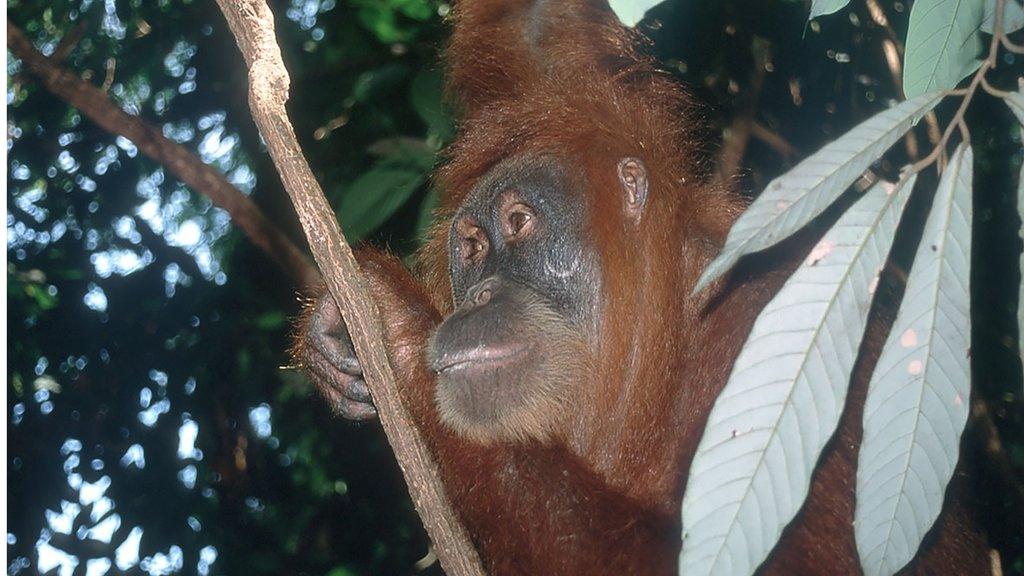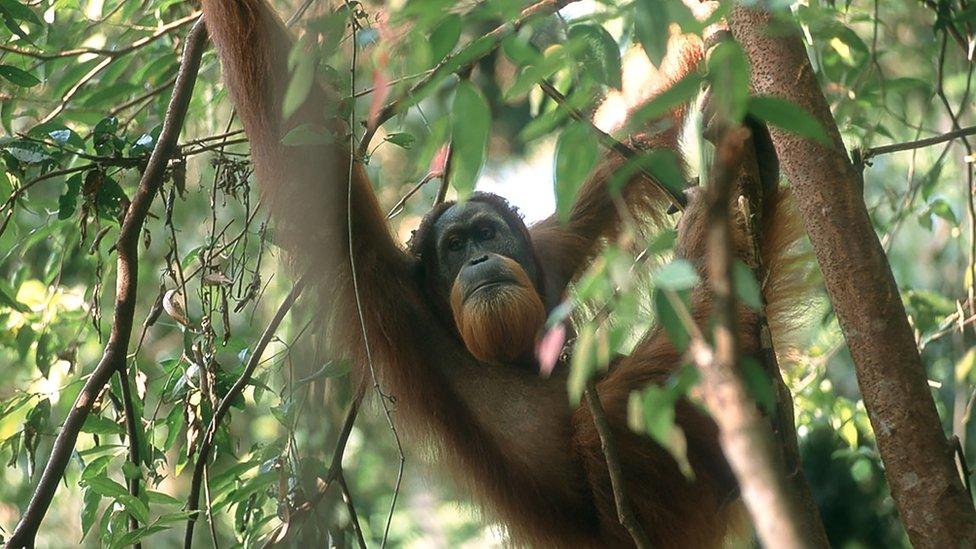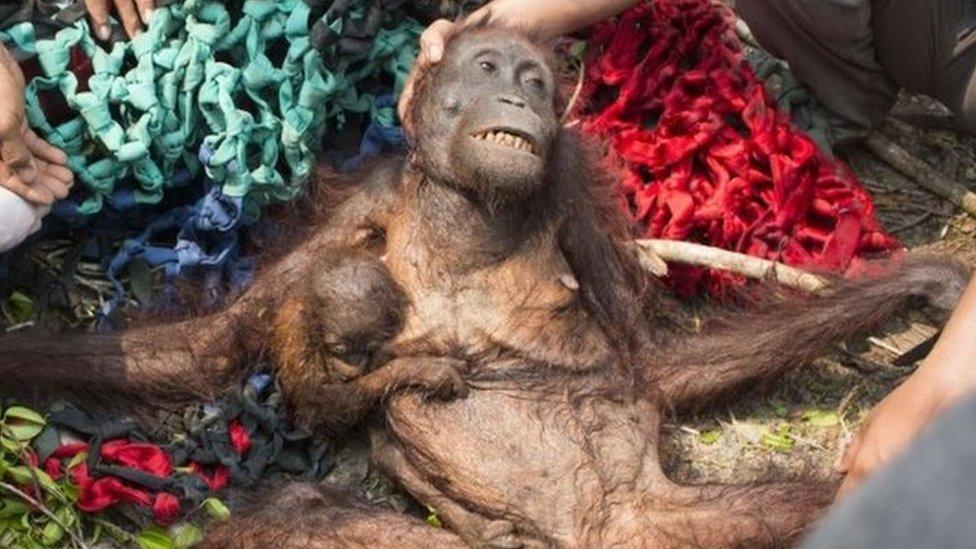Orangutan population up but threats remain
- Published

Orangutans are currently found only in the rainforests of Borneo and Sumatra
There are more Sumatran orangutans in the wild than previously thought, according to a new survey.
The latest estimate puts the population at about 14,600 - more than twice the previous figure, based on a survey of nests where the apes sleep.
Ecologists say the rise is not due to population growth but because some apes were missed in past surveys.
The species remains at serious threat from poaching and loss of forests, they report in Science Advances, external.
Orangutans are the world's largest tree-climbing mammal - and Asia's only great ape.
They were once found across South East Asia, but today are confined to two islands, Borneo and Sumatra.
Their forest habitat is rapidly disappearing, putting their future in jeopardy.
Higher estimate
Until now, the total Sumatran orangutan population was put at 6,600 individuals, based on data from 2004.

Forest loss in Sumatra

A Sumatran orangutan
In the new survey in 2015, orangutans were found in unexpected places, including at higher altitudes in the mountains, forests recovering from logging and areas west of the Toba Lake that had not been previously examined.
An international team of scientists says that while there are evidently more Sumatran orangutans remaining in the wild than once thought, the species remains under serious threat.
It is very important that these findings are not interpreted as suggesting that numbers have increased, nor that their range has expanded, the group reports.
"The known current range is now 17,797 sq km (6,871 sq miles), roughly 2.56 times larger," said a team led by Serge Wich, professor of primate biology at Liverpool John Moores University.
"Since 2004, Sumatran orangutan numbers have undoubtedly declined, and they continue to do so at an alarming rate because of ongoing deforestation and poaching/persecution," they wrote in Science Advances, external.
'Positive'
Prof Wich thinks it is good news that there are more of the apes in Sumatra, but says conservation efforts must continue.
"The overall finding that there are more orangutans certainly is positive because it is always good to have more of a critically endangered species," he told BBC News.
But he warned: "The threats to the forest are as real as ever and the predictions we make in the paper for the future indicate that in all the scenarios we considered there will be continuing decreases in orangutan numbers over the coming years."
The survey was carried out by counting the nests orangutans build to sleep in at night and rest in during the day.
From that, an estimate of population size was made.
The orangutans in Borneo and Sumatra are regarded as separate species.
There are thought to be around 54,000 orangutans in Borneo.
Follow Helen on Twitter, external.
- Published10 November 2015
